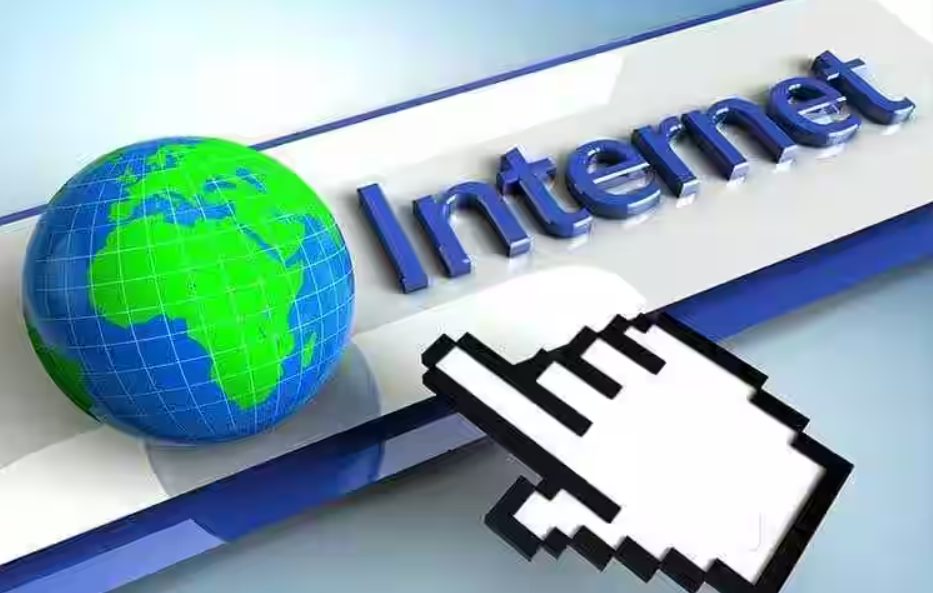The internet has undeniably transformed the way we live, work, and interact. From its humble beginnings as a tool for academic research to its current status as a global network connecting billions of people, the internet has revolutionized communication, commerce, entertainment, and countless other aspects of our lives. At the heart of this transformation lies the vast array of internet services that enable us to access information, communicate with others, conduct business, and engage in a multitude of online activities.
This comprehensive article will delve into the evolution of internet services, exploring their history, current landscape, and future prospects. We will examine the key trends shaping the future of internet services, the challenges and opportunities they present, and their impact on individuals, businesses, and society as a whole.
Contents
The History of Internet Services
The Early Days: ARPANET and Email
The origins of internet services can be traced back to the development of ARPANET, the Advanced Research Projects Agency Network, in the late 1960s. ARPANET, the precursor to the modern internet, was primarily used by researchers and academics to share information and collaborate on projects. One of the earliest and most significant internet services to emerge from ARPANET was email, which enabled users to send electronic messages to each other.
The Rise of the World Wide Web
The next major milestone in the evolution of internet services was the development of the World Wide Web in the early 1990s. The World Wide Web, with its graphical user interface and hypertext links, made the internet accessible to a much wider audience. This led to an explosion of internet services, including web browsers, search engines, online forums, and e-commerce platforms.
The Broadband Era
The advent of broadband internet in the early 2000s marked another turning point in the history of internet services. Broadband, with its high-speed connectivity, enabled the development of more sophisticated and bandwidth-intensive internet services, such as video streaming, online gaming, and cloud computing.
The Mobile Revolution
The widespread adoption of smartphones and mobile devices in the 2010s further transformed the landscape of internet services. Mobile internet, with its ubiquitous connectivity, enabled the development of a new generation of internet services designed specifically for mobile devices, such as mobile apps, social media platforms, and location-based services.
The Current Landscape of Internet Services
Today, the internet is a vast and complex ecosystem of services that cater to a wide range of needs and interests. Some of the most popular and widely used internet services include:
- Communication Services: Email, instant messaging, social media, video conferencing, and VoIP (Voice over Internet Protocol) are some of the most common internet services used for communication.
- Information Services: Search engines, online encyclopedias, news websites, and blogs are essential internet services for accessing information.
- Entertainment Services: Video streaming, music streaming, online gaming, and social media platforms are popular internet services for entertainment.
- E-commerce Services: Online shopping, online banking, and online payment platforms are crucial internet services for conducting business.
- Cloud Services: Cloud storage, cloud computing, and SaaS (Software as a Service) are increasingly popular internet services for businesses and individuals.
Key Trends Shaping the Future of Internet Services
Several key trends are shaping the future of internet services, including:
- The Rise of Artificial Intelligence (AI) and Machine Learning (ML): AI and ML are being increasingly integrated into internet services to personalize user experiences, improve search results, and automate tasks.
- The Growth of the Internet of Things (IoT): The IoT, which connects everyday objects to the internet, is creating new opportunities for internet services that interact with the physical world.
- The Expansion of 5G Networks: 5G, the next generation of mobile networks, will enable faster and more reliable connectivity, opening up new possibilities for internet services that require high bandwidth and low latency.
- The Increasing Importance of Cybersecurity: As internet services become more sophisticated and interconnected, cybersecurity is becoming an increasingly critical concern.
Challenges and Opportunities
The evolution of internet services presents both challenges and opportunities. Some of the key challenges include:
- The Digital Divide: The gap between those who have access to the internet and those who do not is a persistent challenge.
- Net Neutrality: The principle of net neutrality, which ensures that all internet traffic is treated equally, is under threat in some parts of the world.
- Privacy and Data Security: The collection and use of personal data by internet services is a growing concern.
- Cybercrime: The increasing sophistication of cyberattacks poses a significant threat to internet services and their users.
Despite these challenges, the future of internet services is bright. Some of the key opportunities include:
- The Democratization of Information and Communication: The internet has the potential to empower individuals and communities by providing access to information and communication tools.
- The Transformation of Business and Commerce: The internet is revolutionizing the way businesses operate and interact with customers.
- The Creation of New Jobs and Industries: The internet is creating new jobs and industries in areas such as software development, digital marketing, and e-commerce.
- The Enhancement of Education and Healthcare: The internet is transforming the way we learn and access healthcare services.
Conclusion
The evolution of internet services has been a remarkable journey, from the early days of ARPANET and email to the current landscape of sophisticated and interconnected services that touch every aspect of our lives. As we look to the future, it is clear that internet services will continue to evolve and transform, driven by technological advancements, changing user needs, and emerging business models.
Read More: Viasat Reevesville: Bridging the Digital Divide in Rural Illinois







